4 conclusions of the ECHR in the case of Sergiyenko v. Ukraine
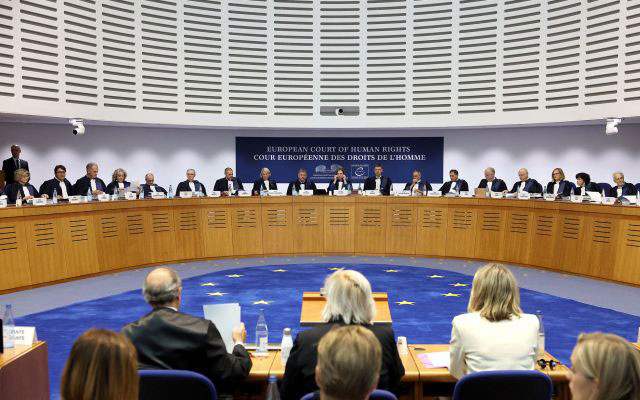
Ukraine must pay lawyer Oleksandr Sergiyenko EUR 15 thousand in compensation for violations of his rights by officials of the National Anti-Corruption Bureau of Ukraine during the investigation of the case against his client.
The relevant judgment of the European Court of Human Rights of November 7, 2024 in the case of Sergiyenko v. Ukraine (application No. 72678/16) was published on the court's website.
In June 2016, the lawyer was arrested and placed in custody as a preventive measure. In September, the court changed the measure of restraint to round-the-clock house arrest. However, the next morning, when O. Sergiyenko was being taken home from the pre-trial detention center, he was re-arrested by the NABU on new suspicion.
Three days later, the court legalized these actions (ruling to detain the man as part of a new investigation). The lawyer immediately appealed the decision, but had to wait almost a month for the appeal. In the end, the appeal was rejected.
During his re-arrest, O. Sergiyenko suffered bruises on his chest, arms and nose. These injuries were recorded during his return to the pre-trial detention center. The court ordered an investigation into the alleged ill-treatment, and the NABU even opened proceedings. However, law enforcement officers found that the lawyer behaved aggressively during his detention, shouted, and refused to comply with the investigator's «requests». Therefore, during the conflict, the officers only responded to the lawyer's resistance by restricting the movement of his arms and legs and handcuffing him. The investigation ended with the NABU officers' actions being recognized as lawful, and it was ruled that there was no crime.
The appeal in the Ukrainian court was unsuccessful, so O. Sergiyenko appealed to the ECHR.
He referred to Article 3 of the Convention for the Protection of Human Rights and Fundamental Freedoms and claimed that he had been ill-treated by law enforcement officers during his arrest, and that the investigation into the incident was ineffective. In addition, the complaint concerned the excessive length of time it took to consider his appeal against the decision to detain him in custody.
The Court confirmed the violation of these rights guaranteed by the Convention, making the following conclusions:
1. When a person submits a substantiated complaint that he or she has been subjected to ill-treatment by the police or other similar public authorities, Article 3 of the Convention provides for the obligation of the state to conduct an effective official investigation.
Such an investigation must identify those responsible for the incident and ensure that they are punished. It must also meet the requirements of promptness, thoroughness, independence and public transparency.
2. The investigation of the incident with O. Sergiyenko was conducted by the same body (NABU) that investigated the case against him. This does not meet the requirements of independence for an effective investigation. Therefore, the ECHR recognized that the investigation of the applicant's complaints of ill-treatment did not have the necessary element of independence to meet the requirements of Article 3 of the Convention.
3. A person under the control of law enforcement officers was injured. This created an obligation on the domestic authorities to conduct an effective and thorough investigation aimed at establishing the origin of the injuries and identifying and punishing those responsible if the allegations of ill-treatment were substantiated.
Although the government referred to the decision of the NABU investigator to close the proceedings on the alleged ill-treatment, the court was not provided with copies of the relevant decisions. Nor did the representative of Ukraine explain their absence. From this, the ECHR concluded that the government had not refuted the applicant's claim that he had been ill-treated by law enforcement officers.
This «presumption of guilt» was enough for the ECHR to classify the applicant's ill-treatment as inhuman and degrading.
4. The ECHR also considered the 28 days for consideration of the appeal to be an excessively long period. It took into account the postponement of the hearing due to the fact that the materials were not transferred from the district court in a hurry, as well as the lack of explanations from the government. Thus, there was a violation of Article 5 of the Convention.
Popular news

Discussion
Why lowering the age of marriage lacks legal logic
Although until 2012 there was a provision in family law that allowed children to marry from the age of 14 under certain circumstances, its return to Ukrainian law would contradict international obligations and the logic of criminal law.
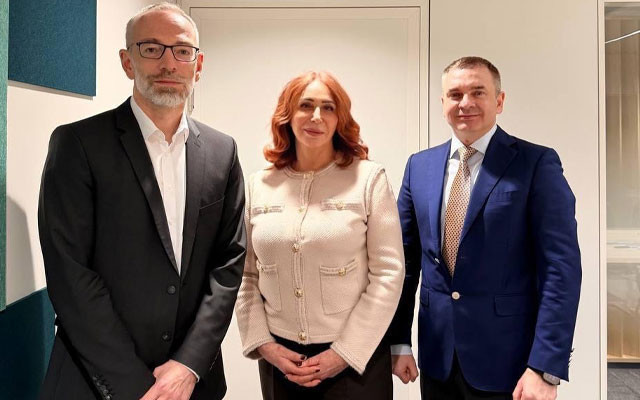
European integration
Open dialogue between the UNBA and the European Commission on the path to EU
The Ukrainian National Bar Association held a working meeting in Brussels with Mr Wolfgang Nozar, Head of Unit for Governance, Rule of Law and Financial Assistance, Directorate-General for Enlargement and Eastern Neighbourhood (DG ENEST), European Commission.

Self-government
A report on Ukrainian advocacy was presented in the European Parliament
Can a shadow report on advocacy replace the political framework of the Roadmap on the rule of law with demands for the restructuring of self-government? Where is the line between accountability and the seizure of institutions? And how can we respond to narratives with data rather than impressions?
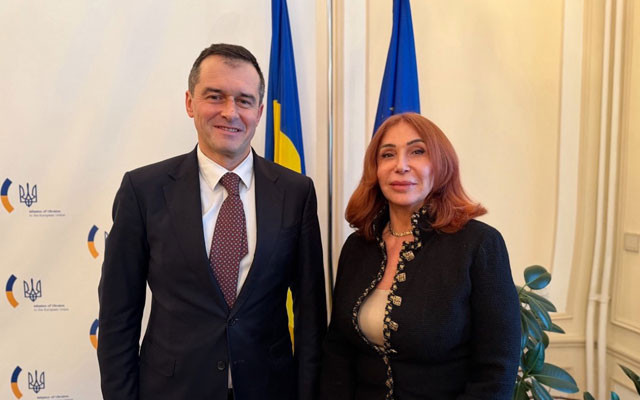
European integration
UNBA and Ukraine's representation to the EU have synchronized their priorities
On February 5, in Brussels, the President of the UNBA, BCU Lidiya Izovitova held a working meeting with the Ambassador Extraordinary and Plenipotentiary of Ukraine, Representative of Ukraine to the European Union Vsevolod Chentsov.
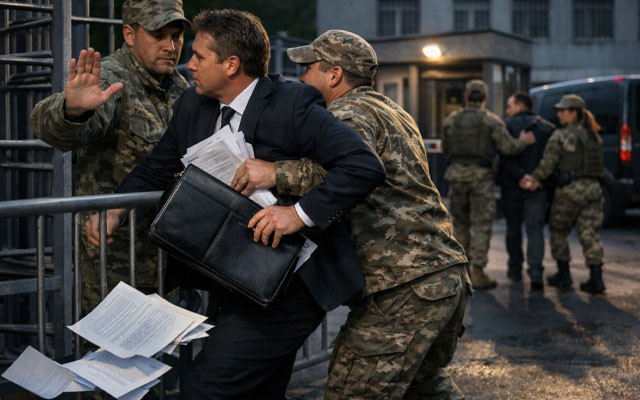
Guarantees of the practice of law
Proceedings opened following attack on advocate in Dnipro
The Committee for the protection of advocates' rights and guarantees of legal practice of the UNBA appealed to law enforcement agencies in connection with an advocate's report of an attack while performing his professional duties. The information was entered into the Unified Register of Pre-trial Investigations and a pre-trial investigation was initiated.
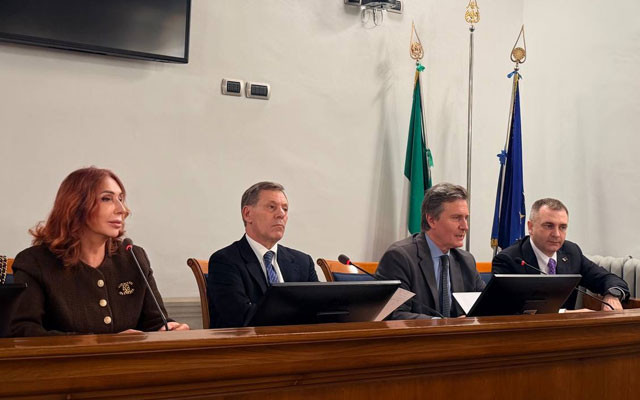
Interaction
«With us — to Europe»: Italian advocacy supports UNBA initiatives
On January 30, a meeting was held in Rome between a delegation from the Ukrainian National Bar Association and the National Bar Council of Italy (Consiglio Nazionale Forense, CNF) on the standards and practices of the legal profession and their significance for Ukraine's European integration process.
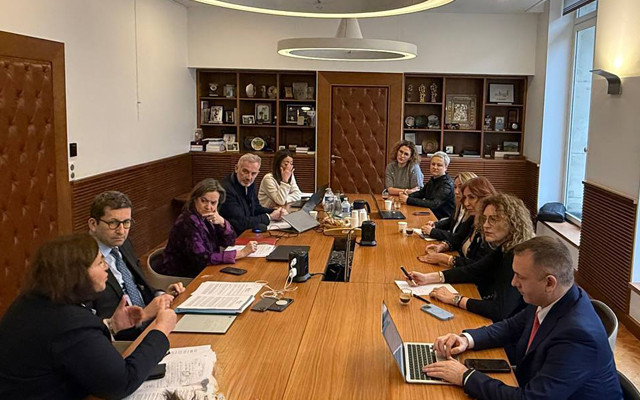
Interaction
France confirms cooperation with UNBA on reforms in the field of the rule of law
On January 29, a working meeting between representatives of the Ukrainian National Bar Association and the French National Bar Council (Conseil National des Barreaux, CNB) took place in Paris.
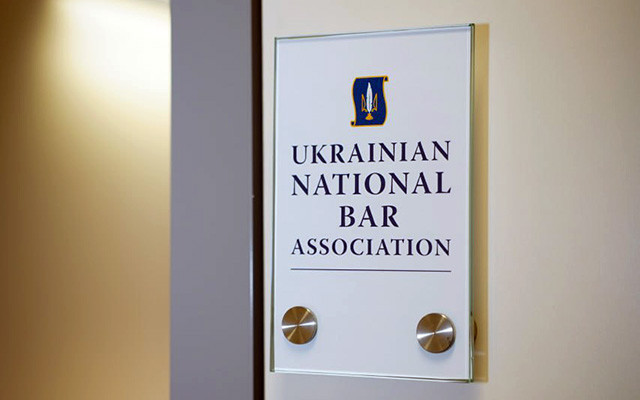
Abroad
UNBA office opens in EU capital
To strengthen the institutional presence of the Ukrainian advocacy community at the European level, an office of the Ukrainian National Bar Association has been opened in Brussels (Belgium), which will serve as a permanent platform for dialogue with European partners.
Publications

Volodymyr Matsko Extradition as a systemic form of rights violations

Victoria Yakusha, Law and Business The anti-corruption vertical cannot «take care» of the Bar as an institution, - acting head of the HQDCB

Censor.net Protecting advocates – protecting justice: addressing concerns about the new law

Ihor Kolesnykov A BRIEF SUMMARY REGARDING THE APPLICATION OF THE ORDER ON EXTENDED CONFISCATION IN LATVIA REGARDING FINANCIAL ASSETS OF…

Valentyn Gvozdiy WORKING IN A WAR ZONE

Lydia Izovitova Formula of perfection

Sergiy Vylkov Our judicial system is so built that courts do not trust advocates

Iryna Vasylyk Advocacy in the proclamation of Independence of Ukraine
